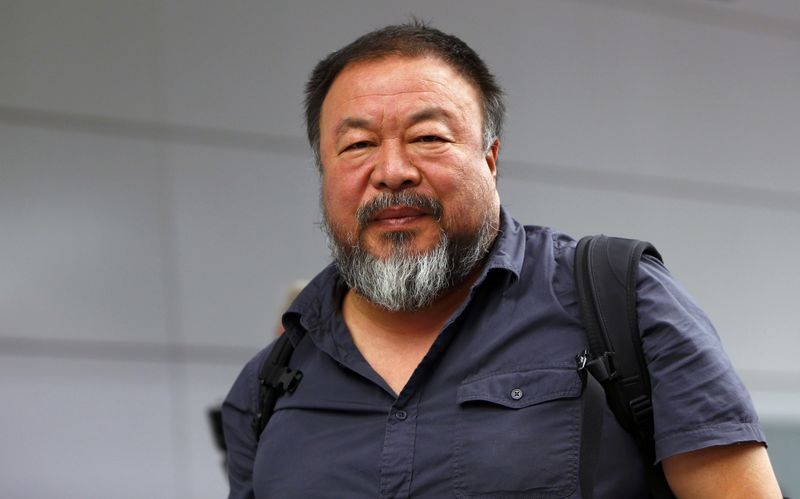LONDON (Reuters) - British Home Secretary Theresa May has intervened to reverse a decision by her officials and grant dissident Chinese artist and free speech advocate Ai Weiwei a full six-month visa to enter Britain, her government department said on Friday.
On Thursday the artist, whose passport was returned by Chinese authorities last week four years after it was confiscated, said Britain had granted him only a short-stay visa.
He said this was because immigration officials said he had not declared a "criminal conviction". Ai, who was detained for 81 days and had his passport confiscated four years ago, has never been charged nor convicted of a crime.
"The Home Secretary was not consulted over the decision to grant Mr Ai a one-month visa. She has reviewed the case and has now instructed Home Office officials to issue a full six-month visa," a Home Office (interior ministry) spokeswoman said.
"We have written to Mr Ai apologising for the inconvenience caused."
Responding to a question about the visa controversy, China's Foreign Ministry, in a statement sent to Reuters late on Friday, said it was an internal matter for Britain.
"Whether or not the relevant country gives a visa to Ai Weiwei is something that is within the scope of its own sovereignty," it said, without elaborating.
Ai, who arrived in Germany on Thursday to see his son, is due to travel to Britain for a major exhibition of his work at London's Royal Academy of Arts in September.
After his release from detention in 2011, the Chinese government said he remained under investigation on suspicion of economic crimes. The world-renowned artist maintains the charges were trumped up in retaliation for his criticism of the government.

Chinese President Xi Jinping will visit Britain in October, and the move could fuel criticism of Prime Minister David Cameron's government, accused by critics of putting trade before human rights in dealing with China.